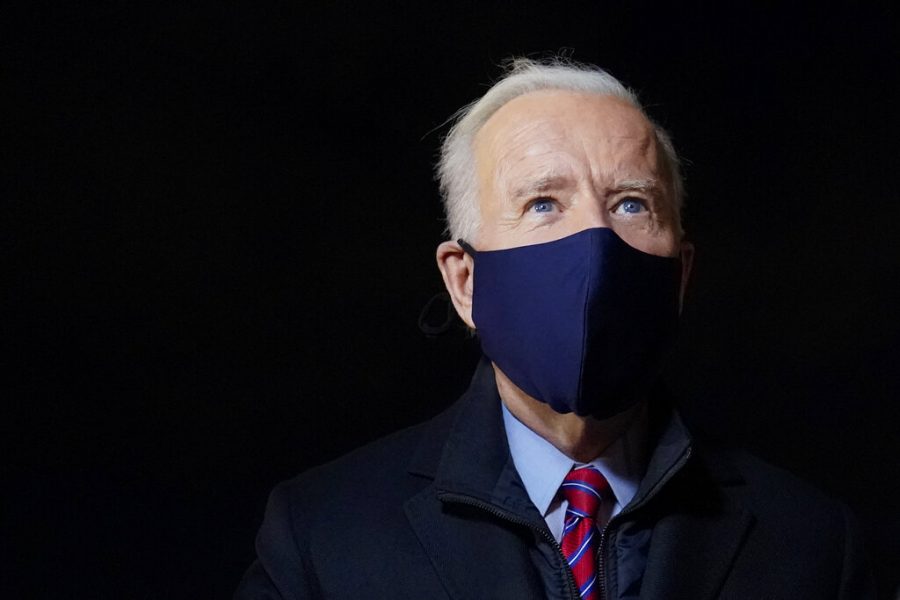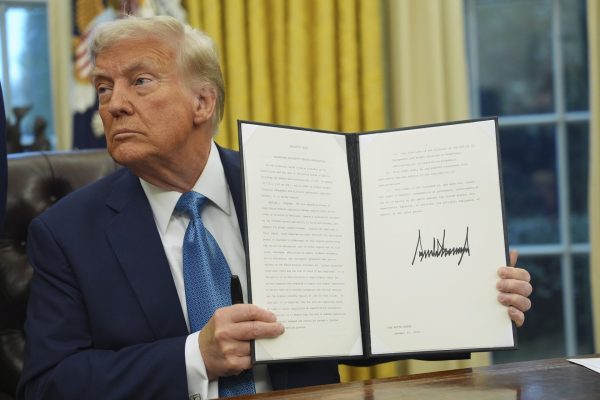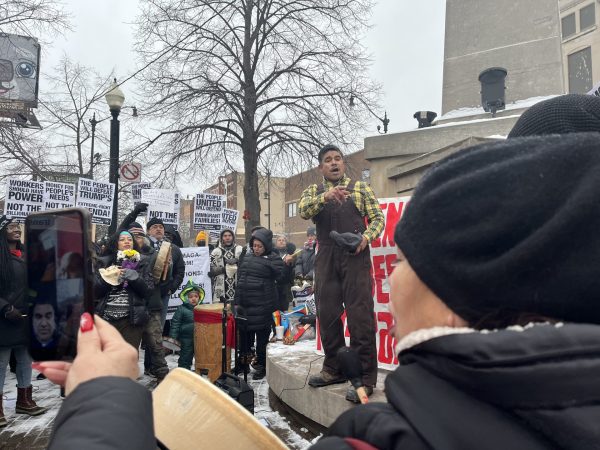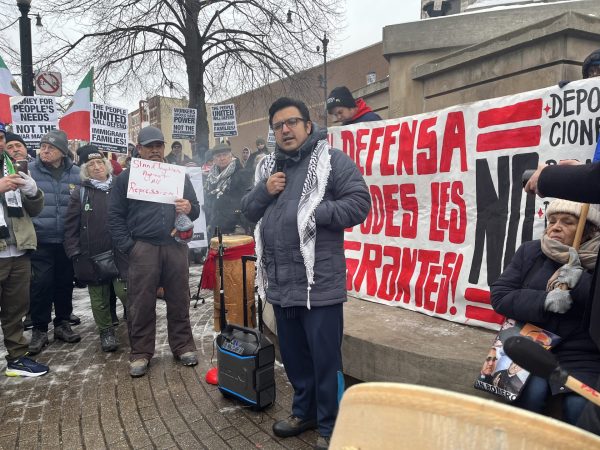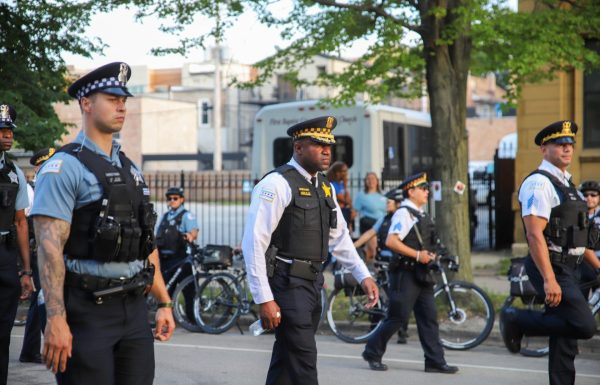Biden promised to prioritize immigration. Will he follow through?
President Joe Biden speaks with reporters after stepping off Air Force One at New Castle Airport in New Castle, Del., Friday, Feb. 5, 2021. Biden is spending the weekend at his home in Delaware. (AP Photo/Patrick Semansky)
President Joe Biden has promised to prioritize immigration reform and sent a bill to Congress that aims to implement a better path to citizenship. Formally titled the U.S. Citizenship Act of 2021, the bill would most notably provide an eight-year pathway to citizenship for some 11 million immigrants in the United States.
William Lopez, a clinical assistant professor and a faculty associate in the Latino Studies Program at the University of Michigan, said that Biden’s proposed legislation opens the opportunity to improve on the immigration policies of the Obama and Trump administrations.
“And I think Biden can now work to improve off from both of those, you know, all of the policies of his two recent predecessors,” Lopez said.
The Obama administration, in which Biden served as vice president, was responsible for deporting more than 2 million immigrants over the course of his eight-year presidency. The Trump administration, which assumed an even tougher approach on immigration, aimed to implement strict border control through the construction of a border wall and increased deportations.
In a primetime address in 2014, Obama spoke about his administration’s approach to immigration.
“That’s why over the past six years deportations of criminals are up 80 percent, and that’s why we’re going to keep focusing enforcement resources on actual threats to our society,” Obama said in his speech. “Felons, not families. Criminals, not children. Gang members, not a mom who’s working hard to provide for her kids. We’ll prioritize, just like law enforcement does every day.”
Obama’s speech, which clearly draws a distinction between “felons” and “families” is indicative of political attitudes toward immigration. Clearly articulated in his 2014 speech, this distinction forms an attitude that serves to distinguish between “good” and “bad” immigrants. In this rhetoric, “good” immigrants are deemed college-educated and holding a certain standard in society. Mass deportations are then justified under the veil of “bad” immigrants.
Lopez draws on this distinction, speaking about the pushback from immigrant communities that “these are not the only type of immigrants that deserve to be treated humanely.”
“Obama said he can punish felons not families in this clear effort to delineate who is being deported, creating this image of the dangerous person toward it,” Lopez said. “But we know people with felonies are generally also parts of families.”
Obama’s famous line, “felons not families,” does not take into account that those two are not mutually exclusive yet pushes the harmful rhetoric of this distinction.
Lopez said that Biden’s use of executive orders to reverse Trump’s policies on a variety of issues has been a good thing but also illustrates the ease in which people in power can alter larger systems. Biden’s successor would just as easily be able to reverse his executive orders if it didn’t fit his vision or agenda.
“I think Biden’s use of executive orders is generally a good thing because I believe he’s undoing lots of executive orders for Trump that were just horrible for many of these communities,” Lopez said. “And it also shows that the immigration system can largely be influenced by a very few people when they’re in a position of power.”
Antonio Gutierrez, a strategic coordinator at Organized Communities Against Deportation, says that the United States needs to address how immigrants have been criminalized. OCAD is a group of organizers that fight against deportations and the criminalization of immigrants in Chicago and the surrounding areas.
“We also understand why the criminalization in the United States comes from our roots of slavery and Jim Crow and remaining to maintain those systems of oppression in our society,” Gutierrez said. “And so there needs to be an exploration of how immigrant communities have been criminalized in the world.”
After a memo was released by the Department of Homeland Security, which places a 100-day moratorium on deportations in order to review current policies and practices concerning immigration reinforcement, OCAD released a statement articulating demands for what comes after the 100-day pause. The demands include the release of those under ICE detention, bringing home those who have been deported and defunding the ICE and Customs and Border Protection budget.
“The review of past prosecutorial discretions [sic] memos is an important action. This is a process that must center the voices of those impacted by enforcement actions,” the statement read. “We must continue to challenge the exclusion of individuals with criminal records from relief and prosecution. We cannot go back to the prosecutorial discretion memos brought to us by the Obama administration that only furthered the narrative of good immigrants versus bad immigrants.”
Joe Tafoya, a professor of political science at DePaul University, says that Biden’s immigration policy is a strong signal to Latinx constituents who may have been unsure of their standing in the Democratic Party.
“I think it’s great that there is, you know, there’s at least this kind of modicum of support, right, that this constituency that has had a difficult relationship with the Democratic Party is being prioritized if even only at face value,” Tafoya said.
Lopez said the 100-day moratorium is a good step, but it remains to be seen what the Biden administration will do after.
“Ultimately, pausing what you’re doing only to return what you’re doing means it wasn’t very progressive in the first place,” Lopez said. “So much remains to be seen of what the results of the pause are.”


